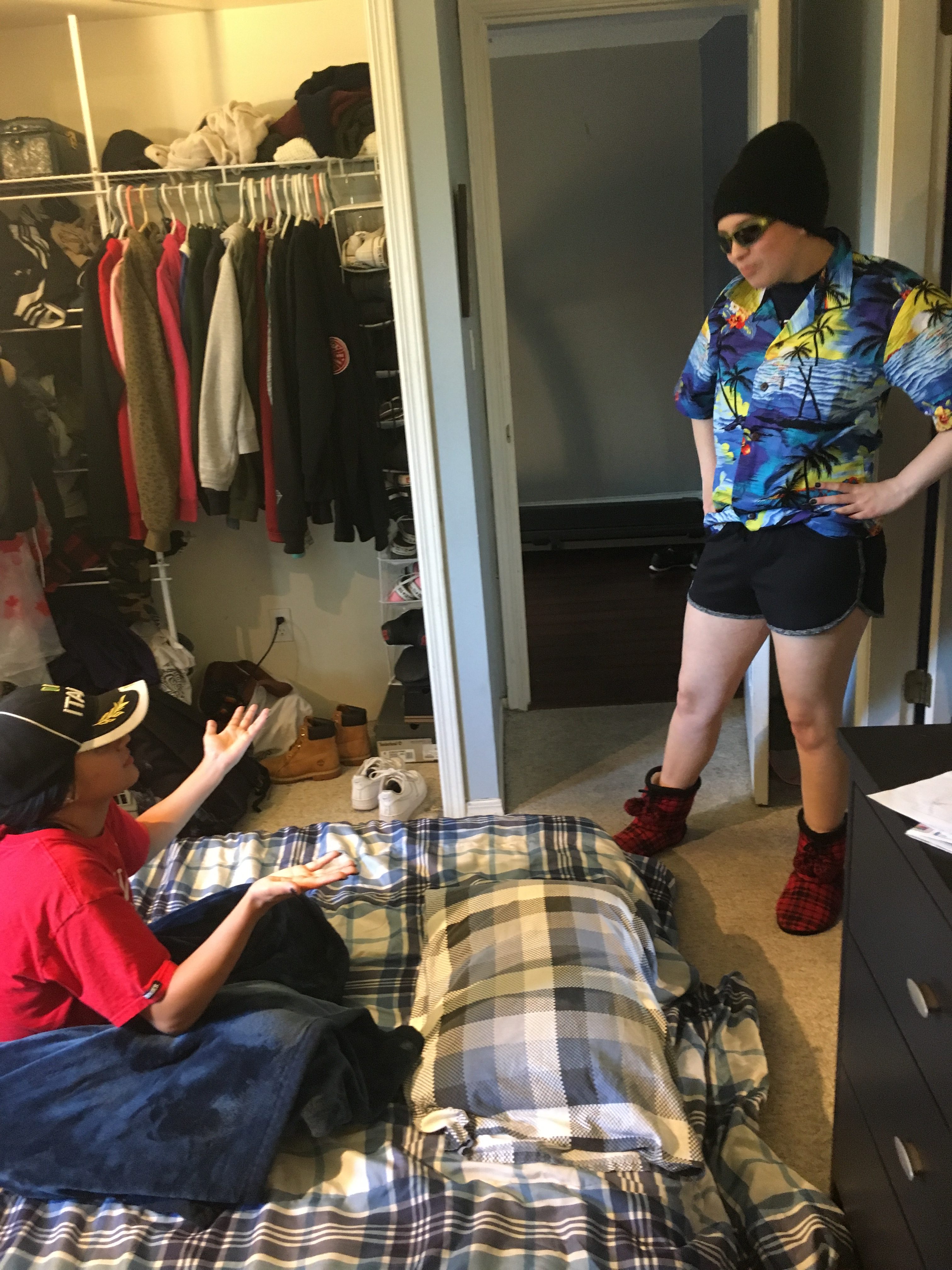In this project, they explained the plot points of a story using greater detail. By working with pictures and quotes; the person will get a better understanding of the events leading to the climax, and those after ending with the denouement. The story used in this project, “Father and Son” by Bernard MacLaverty, is about two family members who have a broke relationship. The son has been caught up in gang; the father does not know how to talk to him about it. Eventually it the father runs out of time to help his son.
Exposition:
“I know that in a few minutes he will come into in to look at me sleeping” (MacLaverty 165)
The father cares a lot about his son, but does not have the confidence to confront him about his issues. Meanwhile, the son is bothered by the father’s frequent attempts to be involved in his life. His attempts include checking in on him before work to make sure he had come home safely. This is the exposition because this gives the reader an introduction to the unhealthy relationship between the father and son. It also introduces the setting which the story takes place in.
Rising Action:
“’Wake up son. I’m away to my work. Where are you going today’ [says the father] ‘What’s it to you?’” (Maclaverty 165)
Evidence of an unhealthy relationship is brought to the reader’s attention. The son feels that his father should not have to tell his father where he is all the time; he just wants to keep him out of trouble. While the father wants to know that his son is safe, there is a lack of communication and respect between the two. This is rising action because it shows their relationship deteriorating and the tension that rises.
Rising Action:
“’Then on the radio, I hear he is dead… I cry. But he comes in for his tea” (MacLaverty 167)
He hears a description of his son on the radio, hearing that he is dead. He assumes the worst and predicts that the description he heard is in fact his son. While in great despair, the son arrives home safely for tea. Even though he came home safely he is starting to stay out later and not tell his father anything more frequently. This is rising action because it foreshadows his sons death.
Rising Action:
“’What’s that under your pillow?’ It’s none of your business’” (MacLaverty 160)
The son had been caught with a handgun, which he hid under his pillow. The son is becoming more and more secretive and sketchy. He is turning to violence with dangerous weapons and still shutting out his father. He is going down a dangerous path. This is rising action because it’s showing the trouble that the son is getting into and the secrets he has been hiding.
Rising action:
“There is a bang. A dishcloth drops from my hand and I run to the kitchen door” (MacLaverty 160)
While washing the dishes the father is startled by a loud bang. Knowing his son owns a gun; he senses danger and reacts quickly to see what has happened. This is rising action because it is leading up to the most intense part of the story.
Climax:
“My son is lying on the floor, his head on the bottom stair, his feet on the threshold” (MacLaverty 160)
The father is in shock when he sees his son on the ground. This is the climax because it shows what happens to the conflict. All the bad things that the son did had finally caught up to him.
Falling Action:
“’Are you hurt?’ ‘Blood is spilling from his nose” (Maclaverty 160)
He checks his son’s consciousness and notices blood around his nose. The father realizes that his son is more injured than he previously thought. This is falling action because this is when his father realizes his son is hurt and unconscious.
Denouement:
“I take my son’s limp head in my hands and see a hole in his nose that should not be there… My son let me put my arms around you” (MacLervarty 160)
While taking his son into his arms he realizes that his son is no longer with him. This is the last time he gets to embrace him. This is the denouement because the father shares his last moment with his son and his last thoughts of the story.








